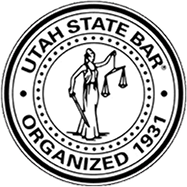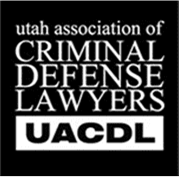Common Criminal Defense Questions
Discuss Your Case with an Experienced St. George Criminal Defense Attorney
Being accused of a crime is often a frightening and overwhelming experience. For many, this is their first interaction with the criminal justice system. For others who have navigated the process before, knowing what may be to come can be equally daunting.
Over the course of my 33+ years in practice, I have found that many of my clients have a number of questions about the legal process and what to expect. While it is impossible to predict the outcome of your case, there are a few common questions that can be answered. Read on to find answers to common criminal defense questions and, if you don’t see your question here or would like more information about your specific situation, reach out to my firm today for a confidential consultation.
Understanding DUI Defense in St. George
If you find yourself facing a DUI charge in St. George, you are not alone. The local community understands the challenges that come with such accusations, especially given the strict enforcement of DUI laws by the St. George Police Department and the Washington County Sheriff’s Office. Navigating the legal landscape can be overwhelming, particularly when you consider the potential consequences, including hefty fines, license suspension, and even jail time.
Residents of St. George often express concerns about the impact a DUI charge can have on their daily lives, from employment opportunities to family responsibilities. The local court system, including the Fifth District Court, can be intimidating, and understanding your rights and options is crucial. Many individuals worry about how a DUI conviction could affect their future, and it’s important to address these pain points head-on.
Our firm is well-acquainted with the local laws and regulations surrounding DUI offenses in St. George. We recognize that each case is unique, and we are here to provide guidance tailored to your specific situation. Whether you are a first-time offender or have previous charges, we can help you navigate the complexities of the legal process and work towards the best possible outcome.
CRIMINAL DEFENSE FAQS
Will I Have a Criminal Record?
If you are arrested or convicted of a crime, you will have a criminal record. This record is public and can be accessed by anyone—a future employer, a landlord, a significant other—who has access to a computer. In certain, very rare cases, it may be possible to have your record expunged (or sealed). This is only the case if you meet certain, strict requirements. Contact a St. George criminal defense lawyer to learn more.
Will They Take Me to Jail Today From the Courtroom?
If you are convicted of the charges against you, you have the right to be sentenced in no less than 2 and no more than 45 days after the verdict is reached. However, you may waive this right. If you decide to do so, you will receive your sentencing on the day of conviction.
What Is Probable Cause?
“Probable cause” refers to law enforcement officials’ right to conduct a search/seizure or make an arrest based on specific evidence that would lead any “reasonable” person to believe that an individual has committed a crime or that evidential items related to criminal activity will be found. In certain situations, such as when making a DUI arrest, probable cause allows officers to act without a warrant. An officer’s determination of probable cause is subject to review in court and must be based on concrete facts, not just mere speculation.
What Is a Preliminary Hearing?
A preliminary hearing occurs in cases involving felony charges, or if you request a preliminary hearing in Class A Misdemeanors in District Court. It takes place after a defendant is formally notified of the charges against him/her at the first appearance and before the arraignment. The purpose of the preliminary hearing is twofold: firstly, to determine whether or not there is probable cause that a crime was committed and secondly, whether or not there is probable cause that the person in question committed the crime.
Can the Evidence Be Suppressed?
Yes, your attorney can file what is known as a motion to suppress. This is a legal document that formally asks the court to suppress evidence on specific grounds. Typically, motions to suppress are filed on the grounds of Fourth Amendment violations. According to the Fourth Amendment to the U.S. Constitution, individuals are protected from illegal searches/seizures. An illegal search/seizure may include searches/seizures that are conducted without a warrant or probable cause. In other words, if you were arrested without probable cause or if a law enforcement officer searched your home without a warrant, your attorney may be able to file a motion to suppress evidence on your behalf.
Can I Make Payments to the Court?
Yes, payments can be made to the court. You may make payments to the court online. You will need to have your court case number as well as your citation number. Contact my office to learn more.
Can I Make Payments to You for My Legal Fees?
Yes, you can make payments to me for your legal fees. I strive to offer affordable legal services for all of my clients. My firm offers several payment plan options; contact my office today to learn more.
What if I Want to Go to Trial?
While you may accept a plea bargain, you do not have to do so. In fact, at my firm, I never try to get my clients to accept a plea bargain if I do not believe it is in their best interests. Over the course of more than three decades in practiced, I have personally handled 100+ jury trials. I have earned the respect of local prosecutors and judges. I am not afraid to take your case to trial and fight tirelessly for you.
What Is a Plea in Abeyance?
A plea in abeyance is a way to resolve criminal charges so that the charges never become a conviction, and get dismissed after a period of time, and completion of specific requirements. Each case is different, but if you are offered a plea in abeyance, it means your lawyer did a great job convincing the prosecutor to give you a break, and let you prove that you are a good person who deserves to not have criminal conviction on your record.
It is usually only offered if you have no prior convictions, and would require either a guilty or no contest plea that the court will then hold for a period of time, like 12 or 24 months. During that time, you would pay a fee to the court of about the same amount as a fine for that offense, and complete requirements, like obtaining an evaluation and treatment, just like if you were on probation. The bonus you receive is that by doing these things in full, and on time, the charges then get dismissed. When charges are dismissed, you are eligible to expunge, or seal the record, 30 days later.
Can Police Question You After You Ask for a Lawyer?
No. If you have invoked your right to an attorney, law enforcement must cease any questioning or interrogating. You can also invoke your right to remain silent when questioned.
What Are the 5 Types of Pleas?
The state of Utah allows 5 types of pleas when accused of a criminal offense. According to code 77-13-1 these include pleas of guilty, not guilty, no contest, not guilty by reason of insanity, and guilty with a mental illness during the crime.
What Is a No Contest Plea?
When a defendant refuses to deny or admit their guilt of the criminal charges they are facing, but will accept the punishment, they enter a no contest plea. In Utah, this type of plea can only be made if the court has authorized it.
What Happens if a Defendant Refuses to Enter a Plea?
The court must enter a not guilty plea for the defendant.
What if I Live in Another State, or Just Can’t Make It All the Way to St. George?
I am an officer of the court, and your advocate in the criminal justice system. I can appear on your behalf in many hearings, so long as we are in contact with each other. In justice courts, I can appear for you for everything but a trial or sentencing. You pay a lawyer to make it more convenient for you.




